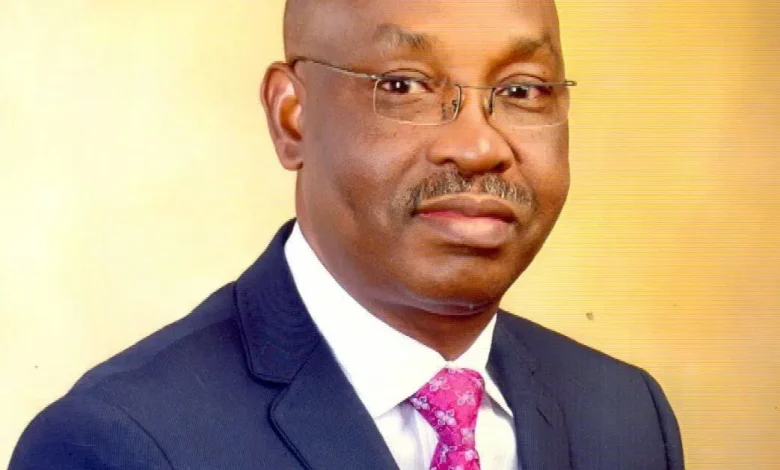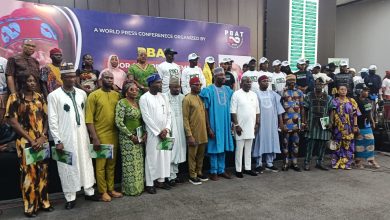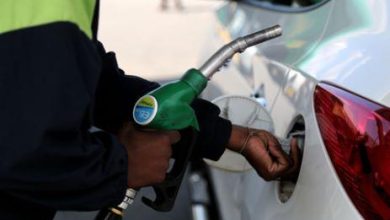Nigeria Reports $305 Billion Revenue from Oil and Gas Sector

Yesterday, the Federal Government was informed that the oil and gas industry generated $305 billion in income inflows between 2014 and 2024.
When Dr. Orji Ogbonnaya Orji, the national coordinator and executive secretary of the Nigeria Extractive Industries Transparency Initiatives (NEITI), testified before the Senate Public Accounts Committee (SPAC) in Abuja, the organization revealed this.
In his talk on the country’s Oil, Gas, and Solid Minerals reports for 2021–2023, Orji stated that Nigeria made $54.5 in 2014, $24.79 in 2015, $17.05 in 2016, $20.9 in 2017, $32.62 in 2018, $34.21 in 2019, $20.43 in 2020, $23.04 in 2021, $35.7 in 2022, and $30.86 in 2023.
Orji also revealed that, from 1999 and 2023, the nation’s oil and gas industry generated $831.14.
800.49 barrels of crude oil were produced in 2013, 798.60 barrels in 2014, 776.6 in 2015, 659.30 in 2016, 690.50 in 2017, 701.10 in 2018, 735.20 in 2019, 646.70 in 2020, 656.20 in 2021, 490.95 in 2022, and 537.00 in 2023, he said.
Nigeria, the ninth-largest gas producer in the world and the top producer in Africa, needs to invest $200 billion in gas infrastructure to maximize its natural resources, Orji told the lawmakers, adding that the country’s gas production between 2019 and 2023 was 13,817,622 Standard Cubic Feet (scf).
The SPAC, which is led by Senator Aliyu Ahmed Wadada, condemned the situation, calling it intolerable, in which the solid minerals sector contributes less than 1% of the country’s GDP annually.
Putting in place the necessary infrastructure to boost the nation’s gas resource production will cost $200 billion, according to Orji.
Nigeria must invest at least $20 billion year in gas infrastructure over a ten-year period, he stated, in accordance with NEITI’s conclusions.
Only gas processing using the necessary infrastructure is what Qatar Energy does.
In order to evacuate gas, Nigeria must invest in gas infrastructure. According to our estimate, building the kind of gas infrastructure needed to supply gas to all of Africa and beyond will require an initial investment of $20 billion per year for ten years.
It goes without saying that this will necessitate the costly building of gas pipelines throughout the West African subregion and beyond.
Read Also: BREAKING: President Tinubu Approves North-Central Development Commission Bill
In 2023, the Nigerian National Petroleum Company Limited (NNPCL), Federal Inland Revenue Service (FIRS), and Nigerian Upstream Petroleum Regulatory Commission allegedly failed to remit $8.5 billion in revenue into the Consolidated Revenue Fund (CR). Orji responded that the Economic and Financial Crimes Commission (EFCC) had begun looking into the matter.
However, he noted that the solid minerals sector is not generating the money the nation needs because its annual profits account for less than 1% of GDP.
Committee members and the chairman, who appeared to be upset by the disclosure, claimed that NEITI’s report on solid minerals did not accurately represent the state of the solid mineral industry.
They questioned why the study only included states like Ogun, Osun, Kogi, Edo, Ebonyi, Rivers, Cross Rivers, and the Federal Capital Territory, excluding states like Nasarawa, Zamfara, Kebbi, Plateau, and Bauchi.
Senator Wadada characterized the annual contribution of solid minerals to the nation’s GDP of less than 1% as absurd and intolerable.
He declared, “This absolutely cannot go on; the sector needs to be completely restructured.”





